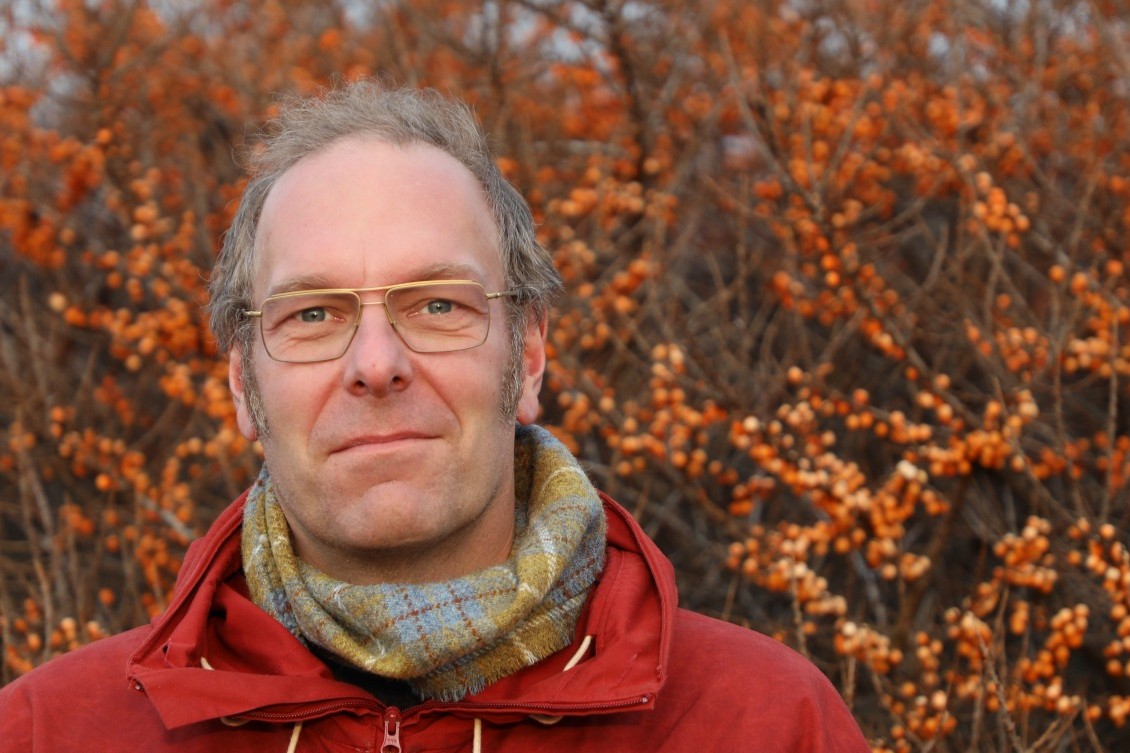Prof. Biological and Environmental Sciences, Nils Bunnefeld: “The experience of being invited to an interdisciplinary event such as NanoValbruna means a lot to me. Because it gives me optimism that my work is beginning to address real-world challenges such as food security and biodiversity loss. In order to tackle these challenges, we need to overcome our own boundaries and academic silos. We need to go beyond farmers speaking to farmers, or scientists speaking to scientists. People from many different backgrounds need to collaborate and this is what will bring change.”
During the Nanovalbruna festival a few students from the editorial staff of Messaggero Veneto Scuola were offered opportunities to interview conference’s participants. Chiara Zanella (18) interviewed Nils Bunnefeld, one of the several participants in the “Virtual Duets”. Nils Bunnefeld is professor in Conservation Science and Co-Director of the Centre for Policy, Conflict and Co-operation Research at the University of Stirling, Scotland.
Nils Bunnefeld’s work is currently funded through the European Research Council under the European Union.
By Chiara Zanella
Could you explain to us what your work consists of?
The aim of my work is to look at conflicts between two different parties. On the one hand those who aim to feed as many people as possible healthy food, on the other hand those who want to pay more attention to biodiversity. My aim is to find ways to overcome these conflict by producing food while at the same time conserving biodiversity.
Can you explain to us what solutions you presented to NanoValbruna regarding food security and biodiversity?
There are no permanent solutions because we are in a world that is quickly changing. Ecosystems are changing, the climate is changing, and society is changing. What I propose is a conflict mitigation framework and conflict management that bring positive change for nature and society.
What is one change you have taken in your life to make the difference?
One of the main changes I made in my life to make a difference is to eat local products where possible. I live in Scotland with its rich natural food resources — local products have a more positive environmental and social impact than eating food from afar.
How do you intend to apply the proposed nanotechnologies in our reality and in our territory?
It’s the first time I’ve been invited to a nanotechnology festival. I have to admit I don’t know that much about it, but I think it’s important to understand the benefits that nanotechnologies can bring if used properly. However, it is understandable that some people may be hesitant to use nanotechnology whereas others are very enthusiastic. Understanding both sides and creating room for cooperation is important if we want nanotechnology to be used more widely. Taking down barriers to change and foster cooperation in a divided world, where extreme positions are often defended passionately, is important if we want to tackle big challenges such as food security and biodiversity loss.
Are you afraid for the future? What’s your view of the world after the COVID pandemic?
I am not a person that is afraid. I believe that working as a researcher means to be curious and this can lead to an optimistic vision of innovation and change. I believe that curiosity and innovation offers you, the new generation, a great opportunity for change. It’s not my generation that will change the world, but you! We need to start sharing ideas and collaborate beyond our immediate networks of people to achieve goals together.
